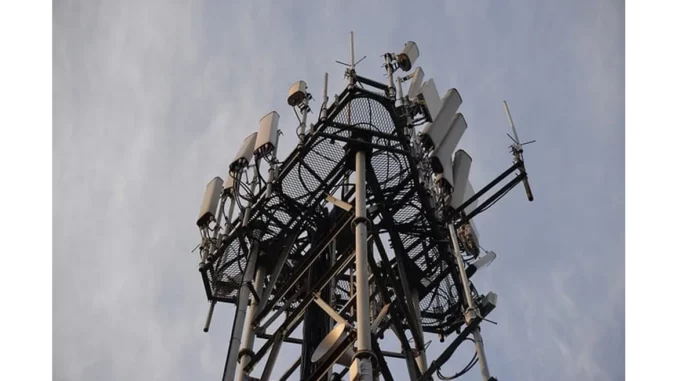
Summary
5G Revolution: Transforming Industries and Shaping Future Economies
The 5G technology rollout is not merely an enhancement in internet connectivity; it signifies a transformative shift with extensive implications across diverse sectors. As industries harness 5G’s potential, its impact is poised to redefine urban living, healthcare, manufacturing, and remote work. Authorities and industry leaders are optimistic about the future, with Jack Thompson, CEO of TechNet Solutions, stating, “5G is the backbone of tomorrow’s digital economy.” This article delves into how 5G is set to revolutionise these key areas and its anticipated influence on the global economic landscape.
Main Article
5G: The Backbone of Smart Cities
The advent of 5G technology heralds a new era in the development of smart cities. Its high speed and low latency are pivotal in fostering an environment where the Internet of Things (IoT) can thrive. This technological infrastructure is essential for integrating sensors, devices, and systems that optimise urban efficiency, cut waste, and enhance residents’ quality of life.
In practical terms, 5G enables intelligent transportation systems that manage traffic in real-time, thus reducing congestion and emissions. By facilitating smart grids, cities can distribute energy more effectively, responding dynamically to fluctuating demands. According to a recent study by the Smart City Association, cities implementing 5G-infused systems have reported up to a 20% reduction in energy wastage.
Healthcare’s Technological Leap
5G is poised to revolutionise the healthcare sector, unlocking new potentials in telemedicine and beyond. With its ability to handle large data volumes swiftly, 5G supports real-time remote diagnostics and consultations, offering unprecedented access to healthcare services. “5G connectivity enables us to bring healthcare into the home,” remarks Dr. Emily Carter, Director of HealthTech Innovations.
The technology’s minimal latency is crucial for advancements in medical robotics and precision instruments, allowing for more accurate surgeries and procedures. It also enhances remote patient monitoring through wearables, improving continuity of care. Hospitals utilising 5G have reported a 35% increase in operational efficiency, according to a survey by the Healthcare Innovation Network.
Manufacturing: Enter Industry 4.0
In the manufacturing sector, 5G is the cornerstone of Industry 4.0, characterised by smart factories and highly automated processes. This technology supports the seamless integration of IoT devices, robotics, and artificial intelligence, enabling manufacturers to enhance product quality and optimise production lines.
5G’s capability to support augmented reality (AR) and virtual reality (VR) is transforming training and maintenance practices, enhancing safety and productivity. Real-time data exchange facilitated by 5G allows manufacturers to make informed decisions swiftly, responding to market demands with agility. Industry reports suggest a potential 30% reduction in downtime for early adopters of 5G technologies.
Redefining Remote Work and Education
The shift towards remote work and online education, accelerated by the COVID-19 pandemic, underscores the need for dependable connectivity. 5G addresses existing challenges by providing high-speed, stable internet connections, ensuring seamless virtual interactions.
With 5G, virtual meetings and large file transfers are conducted with minimal disruption, enhancing the overall remote working experience. In education, 5G enables interactive and immersive online learning platforms, fostering innovative teaching methodologies. As remote modalities continue to expand, 5G remains central to maintaining efficiency and accessibility.
Detailed Analysis
The implementation of 5G technology is more than just a technological upgrade; it is a driver for significant economic and social transformation. The efficiency gains and new capabilities introduced by 5G have the potential to substantially increase productivity across sectors. As noted by economic analyst Sarah Li, “5G is a critical infrastructure that will underpin the next wave of industrial and economic growth.”
The global race to deploy 5G is also a reflection of broader geopolitical dynamics, as countries vie for leadership in this transformative technology. Investments in 5G infrastructure are expected to reach $250 billion by 2025, according to the Global Telecom Alliance, highlighting the strategic importance attached to this technology.
Further Development
As the 5G rollout continues, its impacts will become increasingly evident, providing fertile ground for further exploration and analysis. Industry stakeholders anticipate the emergence of new business models and markets, driven by the capabilities of 5G. Further developments in regulatory frameworks and international standards will also shape the trajectory of 5G adoption.
Readers are encouraged to stay informed about ongoing advancements and their implications. Upcoming reports will delve deeper into the real-world applications of 5G across different sectors and explore the evolving landscape of global connectivity.

